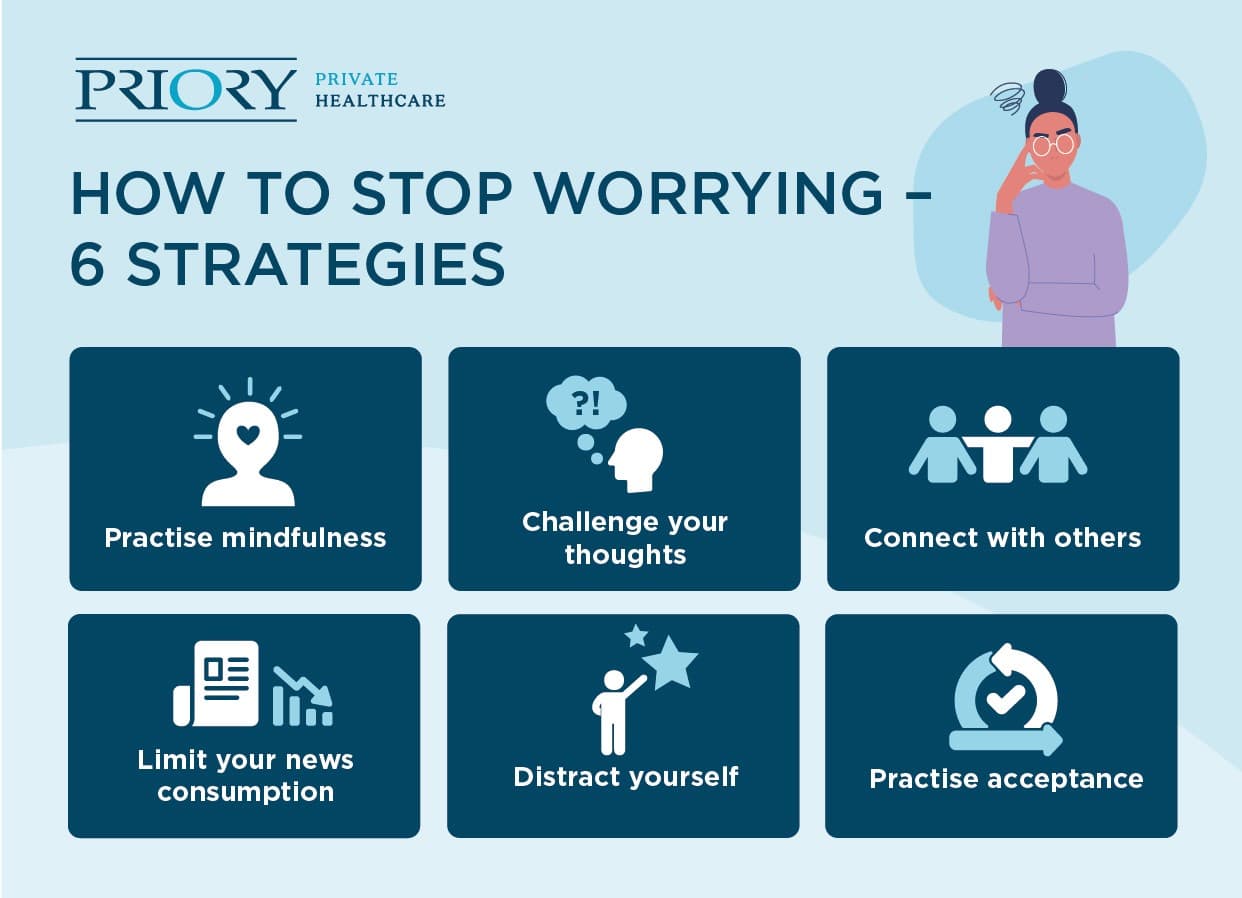Tips on how to stop worrying
Find out more about why we worry, signs you’re worrying too much, and what you can do to stop worrying.
Find out more about why we worry, signs you’re worrying too much, and what you can do to stop worrying.


As humans, worrying is something that comes naturally to us. We're wired to anticipate danger and prepare for worst-case scenarios. However, constant worrying can take a toll on our mental health and overall wellbeing.
Here, we provide tips on how to stop worrying about things you can’t control, helping you to improve your wellbeing.
Worry and fear are natural responses to perceived threats or dangers. They are our brain’s way of trying to protect us from harm. They trigger our ‘fight or flight’ response to keep us safe.
However, sometimes our worries and fears can become excessive, disproportionate to the situation and maladaptive (they are no longer serving a purpose). When this happens, it can lead to anxiety or other mental health problems.
Find out more about the differences between worrying, fear and anxiety.
Worry is a normal, short-term feeling of concern or unease, generally experienced in response to a specific problem or situation. Worrying is different from anxiety, which is a more persistent feeling of unease or apprehension, that’s not necessarily tied to a specific problem. This can persist for a long time and isn’t easily resolved.
If you’re regularly experiencing symptoms of anxiety, this could be a sign that your worry has become out of control and that you’re worrying too much. Anxiety symptoms can include:
Struggling with spiralling thoughts, or find your anxiety leads to overthinking? Priory Therapist, Charlie Carroll, gives five tips to overcome overthinking.
Worrying about things you can’t control can be draining. Over time, it’s likely to have a negative impact on your wellbeing.
Learning how to stop worrying about things you can’t control can be a challenging task. However, it’s a really important step in managing anxiety and improving your overall mental health.
If you’re a chronic worrier, here are some tips to help you stop worrying about things you can’t control:

Treatment for anxiety usually consists of a combination of talking therapies, such as cognitive behavioural therapy (CBT), and medication. You might also benefit from third wave CBT techniques such as mindfulness based stress reduction (MBSR) therapy.
At Priory, we can help you to stop worrying excessively and improve your wellbeing. We can also teach you some effective relaxation techniques, such as deep breathing, to help you to cope better when you're feeling anxious. Our experts will work with you to devise a tailored treatment plan, supporting you to get back on track.
Ultimately, worrying is like a rocking chair; it gives you something to do, but it gets you nowhere. You don’t have to struggle with worrying and anxiety; help is available and you can make a full recovery.
